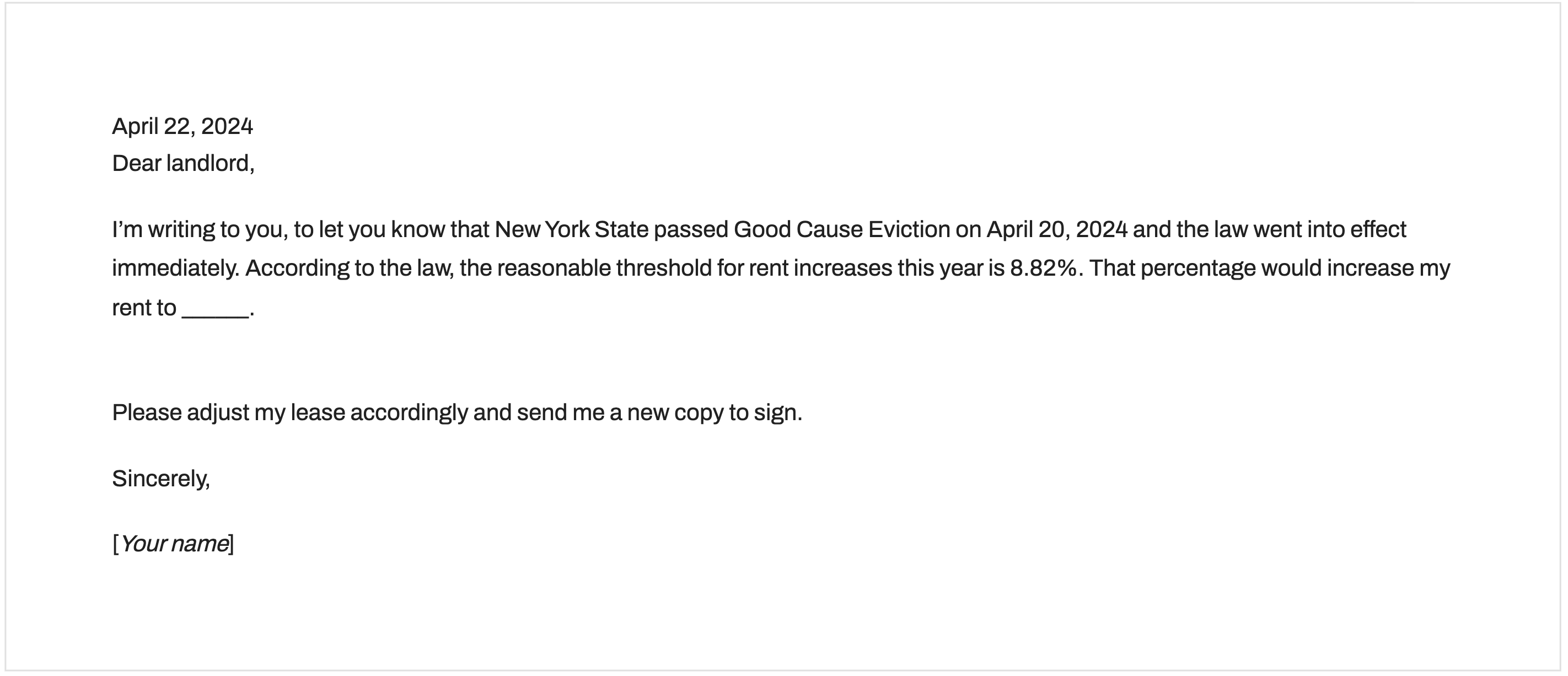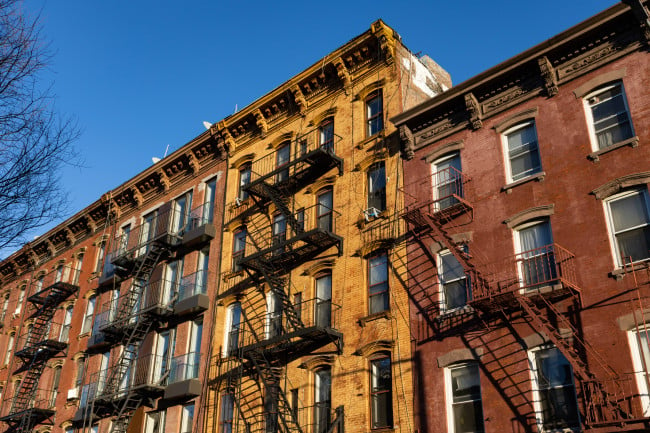How to use New York’s Good Cause eviction law to negotiate a smaller rent increase
- Good Cause eviction allows some market-rate tenants to challenge rent hikes of more than 8.82 percent
- You should try to negotiate with your landlord directly before taking the matter to housing court

If you have a 10 percent rent increase while your neighbor’s rent went up 5 percent, you have a good justification for questioning your landlord’s math.
iStock
Thousands of market-rate renters in New York City can score smaller rent increases this summer, but first they’ll have to negotiate.
New York’s Good Cause eviction law, passed in the state budget in April, allows certain tenants to challenge rent increases above 8.82 percent this year in court, and requires landlords to justify why they didn’t renew a renter’s lease.
The landmark tenant protections could be a huge boon to renters this summer if they face rent increases when renewing their leases. But because enforcing these rights requires going to housing court, it’s in your best interest to try to negotiate with your landlord first.
If your landlord wants to increase your rent above 8.82 percent this year, read on for how you can try to negotiate a better deal.
1) Figure out if you’re covered under Good Cause
Good Cause provides renters with more power during a negotiation with their landlord, but not every renter in NYC is covered.
For example, those that pay over $6,005 for a one bedroom or who live in buildings constructed after 2009 are not covered under Good Cause eviction protections.
You can check if your building is covered by going to openigloo, an apartment listing and review platform. You are in the clear if your address displays a badge that says “Good Cause Eviction: Yes.”
Or, you can do your own research by checking out Brick Underground’s best advice on how to tell if your apartment is protected by the new law. Roughly 61,000 buildings are covered under Good Cause, with the most covered buildings located in Brooklyn, according to openigloo.
2) Talk to other tenants in your building
Your neighbors can be a great resource to figure out how much rents are going up in other apartments.
For example, if you received a 10 percent rent increase while your neighbor’s rent only went up 5 percent, you have a good justification for questioning your landlord’s math, said Andrea Shaprio, director of programs and advocacy at the Met Council on Housing, a tenant’s rights organization.
“You can say, ‘I know you gave the people in 2B a 5 percent increase. Their rent is $2,000, and I want the same deal,’” Shaprio said. That’s a much stronger negotiation. If you can find other people whose lease goes up at the same time, that's even better.”
Armed with that information, you can make a case for a rent increase below the 8.82 percent threshold this year. You can also talk to other tenants who’ve negotiated their rent before to learn what approach works best with your landlord, Cea Weaver, coalition director for Housing Justice for All, previously told Brick Underground.
“I would figure out if any of them have been able to negotiate with the landlord in the past and try to see what worked and what didn't work,” Weaver said. “I really would try to talk to my neighbors to learn best negotiating tips.”
3) Give your landlord a counter offer
First, you should make sure your landlord gave you adequate notice of the rent increase. In NYC, landlords are required to give you at least 30 days notice of a rent increase above 5 percent if you’ve lived in your building for less than a year, and more if you’ve lived there longer.
Provided their notice was above board, you should tell your landlord you’re willing to pay at or below the Good Cause threshold for a rent increase: 8.82 percent of your current rent this year. And make sure to explain why you’re asking for a smaller rent increase.
Even if you know your landlord is going to put up a fight, it’s best to approach them politely and clearly, Shaprio said.
“If it is too much, say so. And say what you expect the rent to be,” Shaprio said. “It’s always good to ask politely, use please and thank you, but be clear: ‘this is the law, I expect you to follow the law, and thank you for reading this.’”
The Met Council has a sample email you can use if you can’t figure out what to say. Click this link for a PDF.

4) Contact tenant’s organizations for help
Your landlord may try to argue, incorrectly, that Good Cause isn’t in effect yet. Good Cause went into effect in April, but landlords aren’t required to notify tenants whether or not they are covered until August this year, according to Housing Justice for All.
If your landlord says they are going to charge you more than 8.82 percent regardless of Good Cause, you may want to get help. You can call 311 and ask for the tenant helpline, call the Met Council on Housing’s tenant’s rights hotline at 212-979-0611, or your local tenants union for advice.
5) Consider going to court
Your final option is to go to housing court to enforce your rights, but that’s not a decision you should make lightly.
“This has to do with everyone’s risk tolerance,” Shaprio said. “There are some people who can pay 12 percent and will pay 12 percent, but we encourage everyone to fight it.
First off, there is a chance your landlord could win and enforce a rent increase higher than 8.82 percent.
Good Cause doesn’t ban high rent increases altogether, it just asks your landlord to justify the hikes. So, if your landlord did extensive renovation work on the building, they may be able to argue that a higher rent increase is necessary.
If you do decide to go to court, your first step would be to pay your rent with the 8.82 percent increase and withhold whatever extra amount above that threshold your landlord wanted to charge you. You could also withhold all of your rent, but in either case, make sure you’re saving that money in an escrow account. Doing so will allow you to pay in case your landlord wins the case.
Next, your landlord will initiate a nonpayment case against you—a type of eviction case. When you appear in court, you (and ideally an attorney) should make the argument that you’re entitled to a smaller rent increase thanks to Good Cause eviction. If you are facing eviction, you can get free legal services in court, if you meet NYC’s income eligibility requirements.
You Might Also Like



























